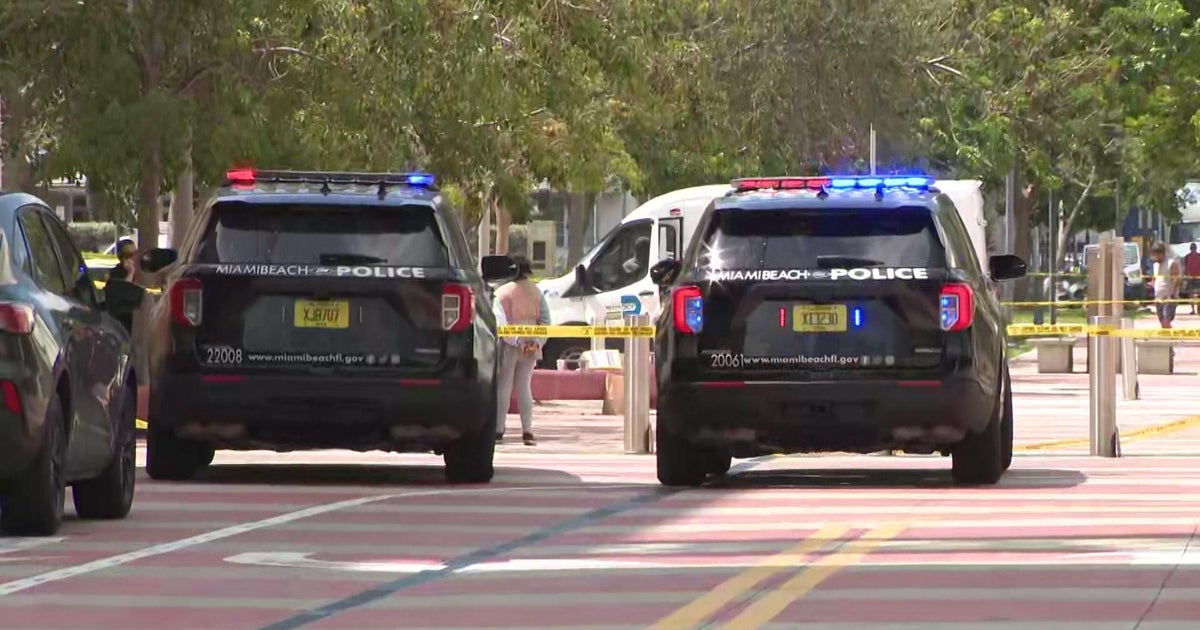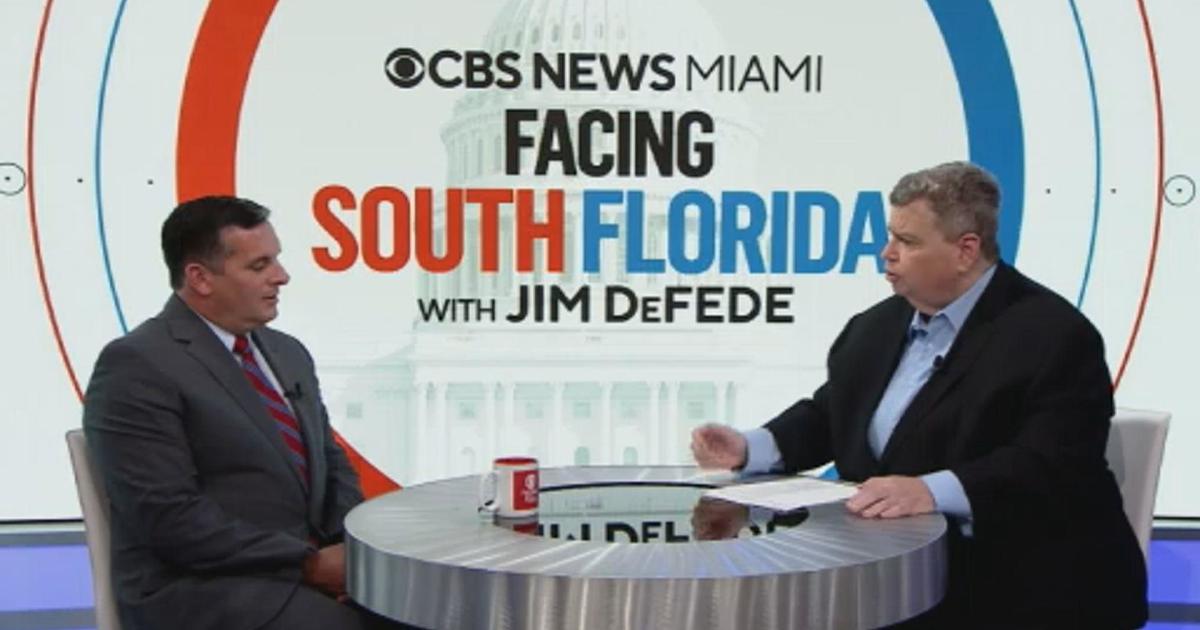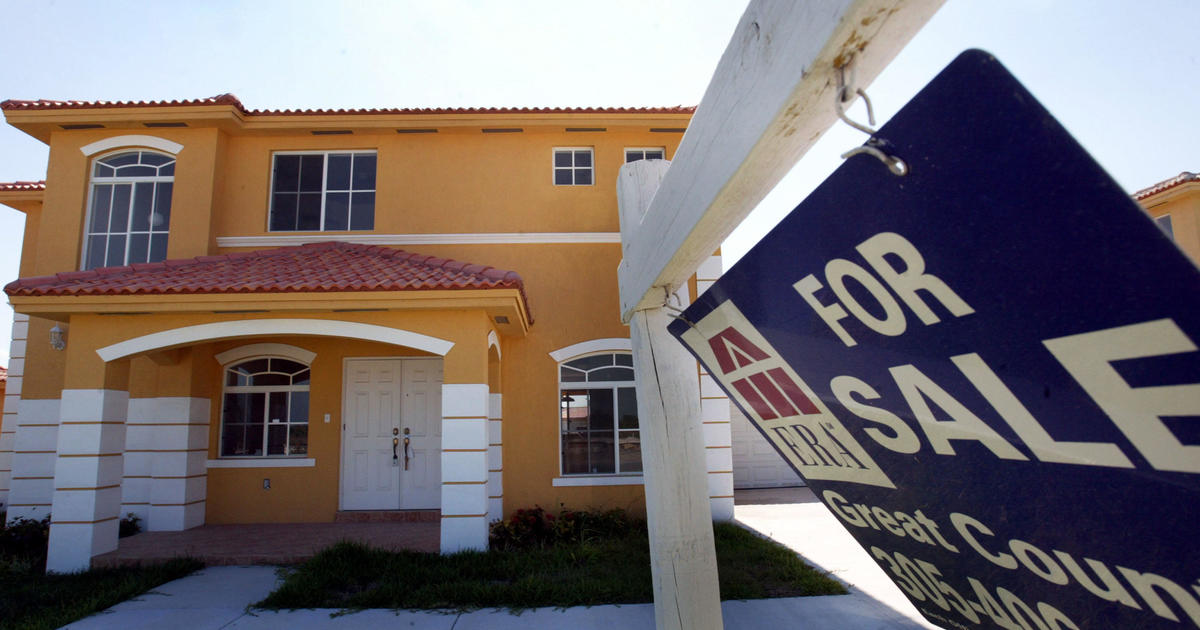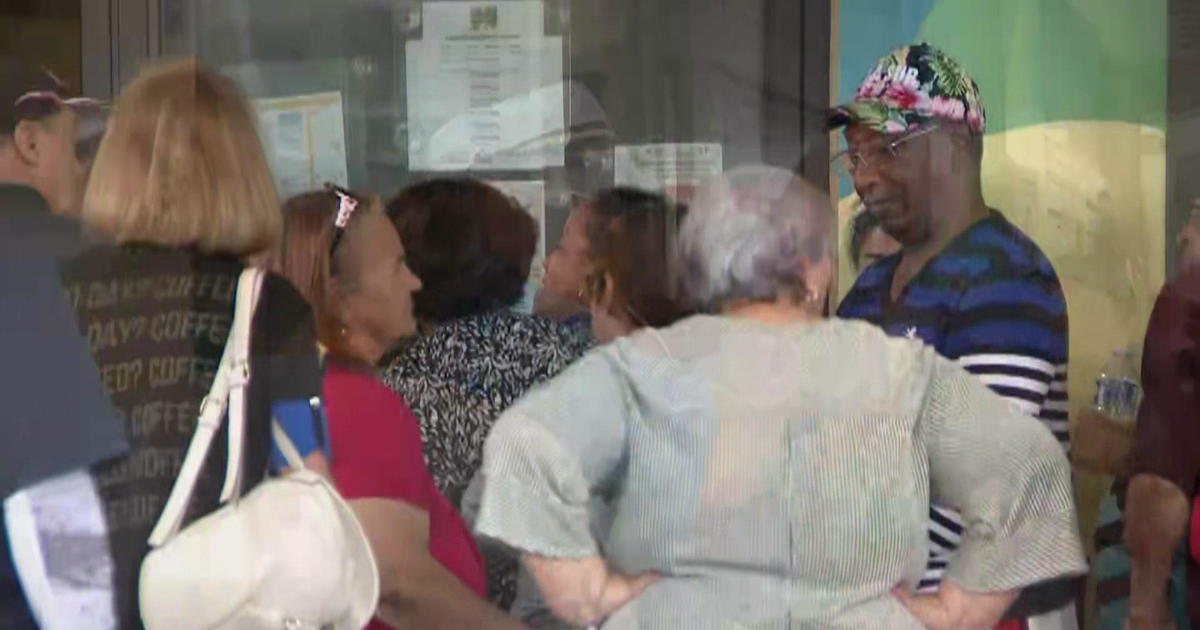Mandela's Impact On South Florida
MIAMI BEACH (CBSMiami) - As the world mourns the passing of Nelson Mandela, many in Miami remember his connection to South Florida. It was a visit that caused controversy, division, and, in the end made a difference for African-Americans here.
In June, 1990, Mandela walked off a plane at Miami International Airport, just four months after being freed from nearly three decades in a South African gulag, where he had done time for opposing racial discrimination.
The next day, June 29th, Mandela got a police escort to the Miami Beach Convention Center where he addressed a crowd of 6,000. The audience was a convention of the American Federation of State, County and Municipal Employees(AFSCME).
Labor unions had, for years, lobbied for Mandela's freedom and maintained a constant picket line outside the South African embassy in Washington, DC.
The union workers cheered as Mandela thanked them for their efforts to free him and other political prisoners who had been fighting South Africa's system of segregation, apharteid.
"We could hear, loud and clear, your voices calling for our release," Mandela said.
The crowd took to its feet.
There was a different crowd outside. Angry Cuban Americans waved Cuban flags and shouted protest slogans, condemning Mandela. To them, Mandela was anathema. Why? He was friends with Fidel Castro.
Cuban Americans ran an ad in the Miami Herald, quoting Mandela as saying, "During all my years in prison, Cuba was an inspiration and Fidel Castro a tower of strength."
To exiled Cubans in Miami that was the equivalent of profanity.
As Mandela spoke, a banner plane flew over the convention center pulling a sign labeling him a communist. Another flying banner lumped him with Libya's Muammar Gudaffi, The PLO's Yasser Arafat and, of course, Castro.
Cuban american political leaders snubbed Mandela's visit. Miami mayor Xavier Suarez, county commissioners, even Dade's Anglo Mayor Stephen Clark did not welcome him or attend his speech. Resolutions were passed demanding he repudiate Castro. He did not.
"The anger was heavy, and I was representing my city," then Hialeah Mayor Julio Martinez told CBS4's Gary Nelson in a recent interview.
Martinez was among those who snubbed Mandela and signed a proclamation demanding he disavow Castro.
"I wish that Mr. Mandela would have taken those words back, calling Fidel Castro his brother. That would have made a big, big difference," Martinez said.
Many of Miami's black leaders were insulted and offended. They took the local leadership's snub of Mandela as a snub of them and African Americans across the country
"Local Miami politicians were making Miami the laughing stock of the nation by disrespecting him, disregarding him, and it was just a shameful day," attorney H.T. Smith told CBS4's Gary Nelson.
The black community got mad, and got even.
African Americans organized a "Boycott Miami" effort, creating an activist group of the same name.
"This was a poster that we used as we protested," Smith said, holding a framed copy of a poster reading "Boycott Miami Area Hotels."
The group mobilized, urging conventions to stay away from Miami and the beaches, where virtually no blacks held jobs as waiters, bartenders or bellhops, let alone managers.
"We weren't hurting ourselves by taking on the boycott - what we called the "quiet riot," Smith said.
The "quiet riot" made news across the country and around the world. For a thousand days organizations stayed away from our sun and sand in droves - at an estimated loss of fifty million dollars to local tourism related businesses.
In May, 2003, the establishment buckled. The Miami Herald reported an "economic truth" ended the boycott, with a multi-racial and ethnic board being formed to try to try to soothe the divisions and make things right.
The black community won an infusion of investment in black businesses. Black employees were given jobs in tourism and black students were given a minimum 25 scholarships a year - in perpetuity - to earn degrees in the hospitality field. Financing was arranged for the first-ever black-owned convention hotel on Miami Beach.
At the first meeting of the newly formed group, "Miami Partners for Progress," an ebullient Smith declared, "As you go through the black community now you can feel a new enthusiasm and a new self respect!"
While most black leaders supported condemned the treatment Mandela received in Miami and supported the Boycott, T. Willard Fair was not among them.
"I didn't support it, don't support it, I was not insulted," Fair told CBS4 News recently. "I think others responded inappropriately,"
Fair said he came down on the side of free speech for the Cuban Americans who chose to speak ill of Mandela, and on the side of Mandela to speak his convictions and associate with those he chose.
"Mr. Mandela made it very clear that Mr. Castro had supported him when he was in prison," Fair said. "He was true to his friend."
H.T. Smith said the boycott achieved advances for blacks and taught the Cuban American political leadership a costly lesson.
"'We're just going to represent our interests, and be damned with your hero?' I don't think they will do that again," Smith said.nterests and be damned with your hero? I don't think they will do that again.
It was not until after the boycott, at the NAACP's national convention on Miami Beach, that an olive branch was extended from a Cuban American leader.
Then Miami-Dade Mayor Alex Penelas - also a candidate for the U.S. Senate - stood on the same stage where Mandela had stood three years earlier and addressed the sea of mostly black faces.
"My apology to President Mandela for the way he was received during his visit to Miami in 1990," Penelas said. The crowd applauded. The applause grew. And then the audience took to its feet.
Penelas's would be a lone voice.
Others, to this day, have offered no mea culpas.
"If I had to do it over again, I would do it in the same manner," said Hialeah's former Mayor Martinez.
"No apologies?" Martinez was asked.
"No apologies, whatsoever," he replied.
Still, more than two decades after Nelson Mandela came to Miami - the controversy, the acrimony - both sides agree that the South African freedom fighter made a difference around the world. He certainly did in Miami.
"Mr. Mandela, I think, has done a lot of good for the world, especially his people," said Martinez. "I was representing my people at the time."
"Nelson Mandela will definitely go down as one of the great statesmen of the 20th century," said Smith, the boycott leader.
"To him," said T. Willard Fair, "The world owes the highest respect."



